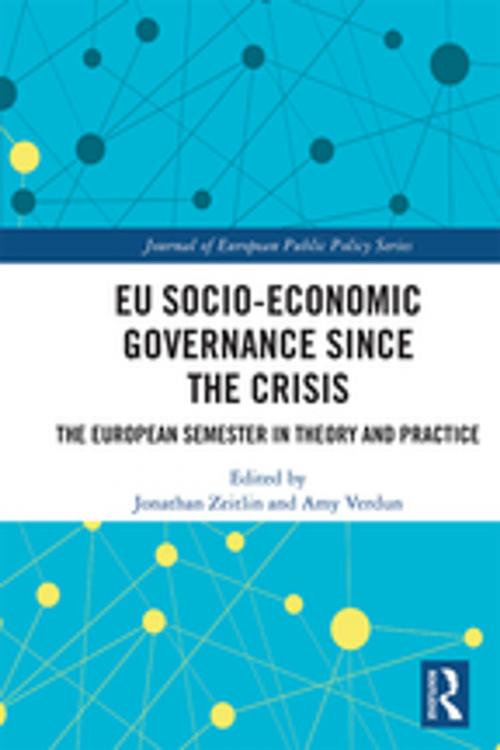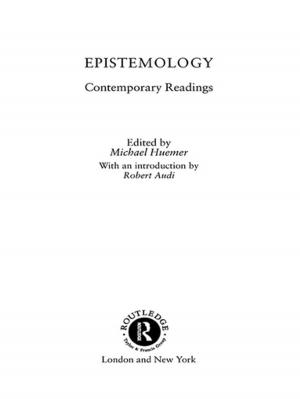EU Socio-Economic Governance since the Crisis
The European Semester in Theory and Practice
Nonfiction, Social & Cultural Studies, Political Science| Author: | ISBN: | 9781351025607 | |
| Publisher: | Taylor and Francis | Publication: | December 7, 2018 |
| Imprint: | Routledge | Language: | English |
| Author: | |
| ISBN: | 9781351025607 |
| Publisher: | Taylor and Francis |
| Publication: | December 7, 2018 |
| Imprint: | Routledge |
| Language: | English |
This book is the first to be dedicated entirely to the European Semester -- a new framework for policy coordination across European Union (EU) member states. The Semester represents a major advancement in EU governance. Created in 2010 in the wake of the financial and sovereign debt crises and revamped in 2015, it was intended to provide a new socio-economic governance architecture to coordinate national policies without transferring legal sovereignty to EU level. The papers in this collection are written by authors who have already contributed to this literature and have conducted original research for their studies. The book offers an empirical and theoretical assessment of the European Semester, examining its implications along three critical axes, running respectively between the economic and the social, the supranational and the intergovernmental, and the technocratic and democratic poles of EU governance. The book concludes that the European Semester challenges established theoretical understandings of EU governance, as it is a prime example of the complexity that supersedes simple polar oppositions.
The chapters were originally published in a special issue of the Journal of European Public Policy.
This book is the first to be dedicated entirely to the European Semester -- a new framework for policy coordination across European Union (EU) member states. The Semester represents a major advancement in EU governance. Created in 2010 in the wake of the financial and sovereign debt crises and revamped in 2015, it was intended to provide a new socio-economic governance architecture to coordinate national policies without transferring legal sovereignty to EU level. The papers in this collection are written by authors who have already contributed to this literature and have conducted original research for their studies. The book offers an empirical and theoretical assessment of the European Semester, examining its implications along three critical axes, running respectively between the economic and the social, the supranational and the intergovernmental, and the technocratic and democratic poles of EU governance. The book concludes that the European Semester challenges established theoretical understandings of EU governance, as it is a prime example of the complexity that supersedes simple polar oppositions.
The chapters were originally published in a special issue of the Journal of European Public Policy.















